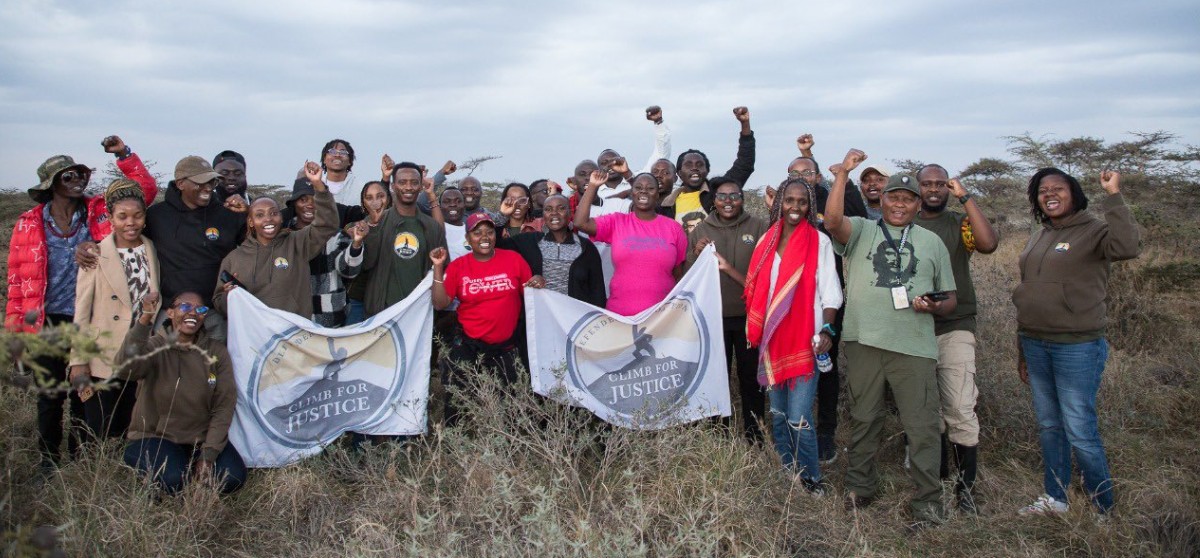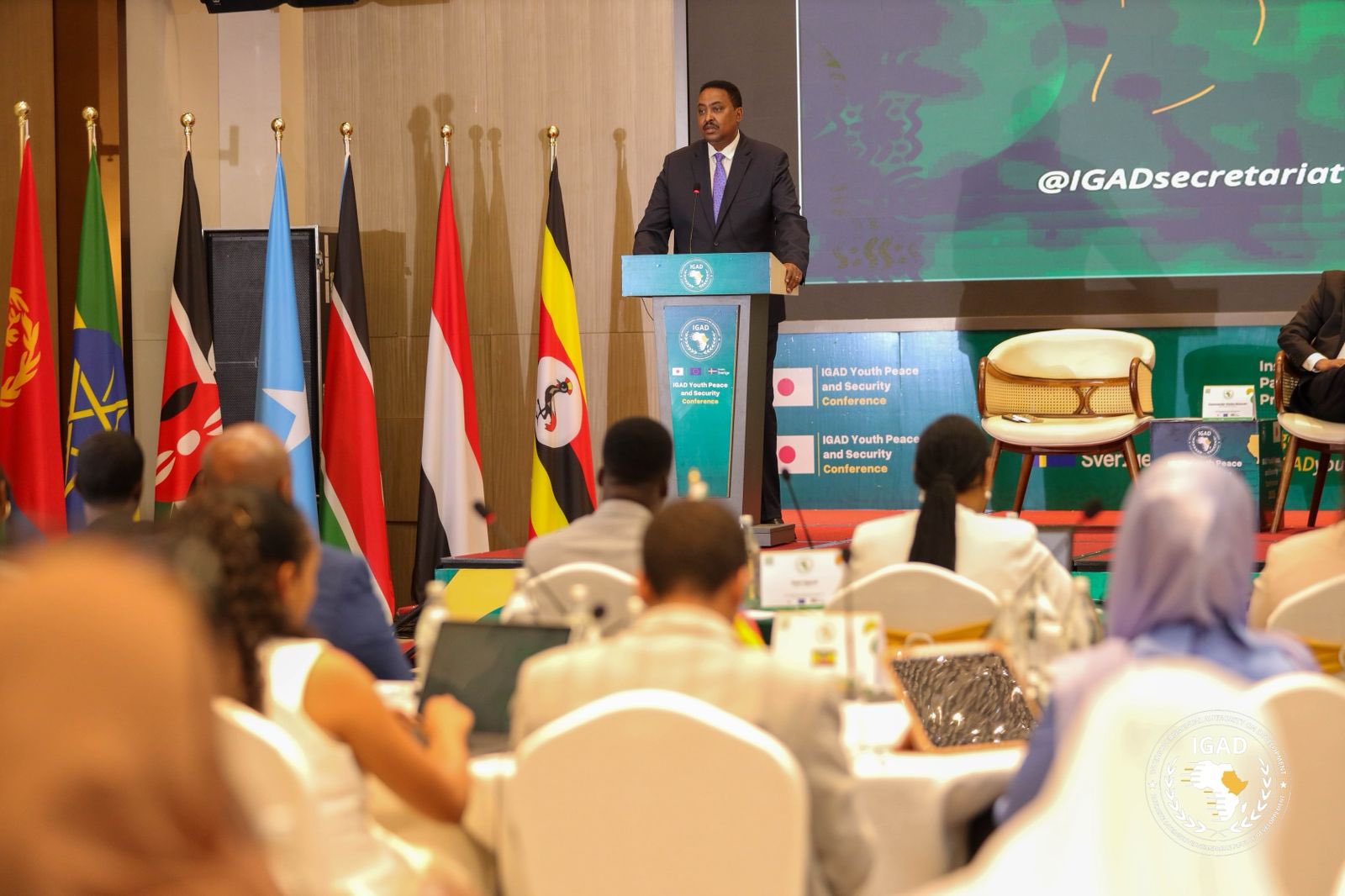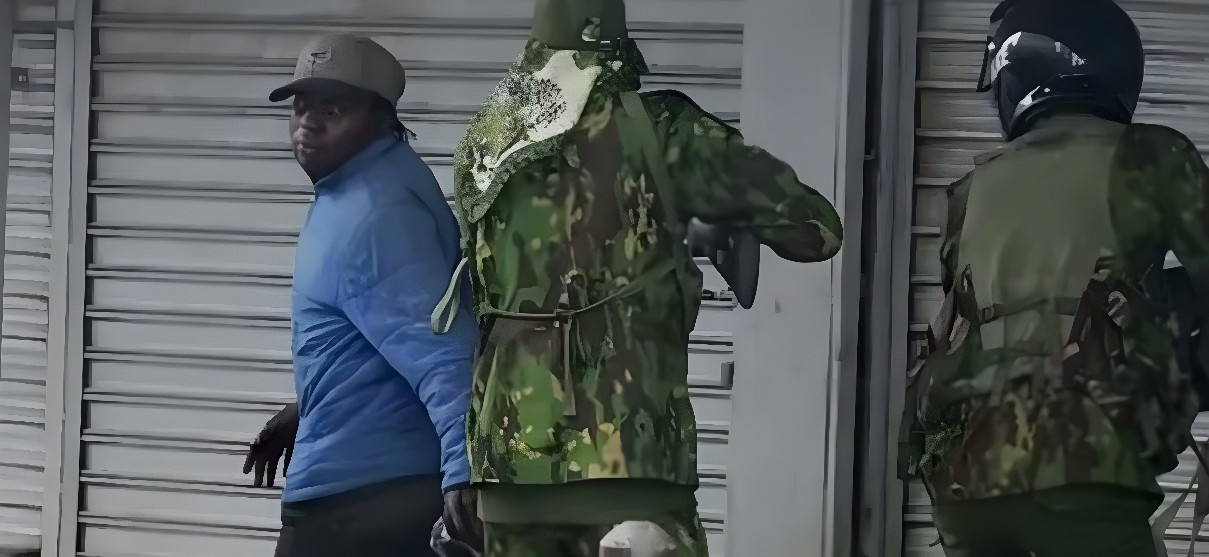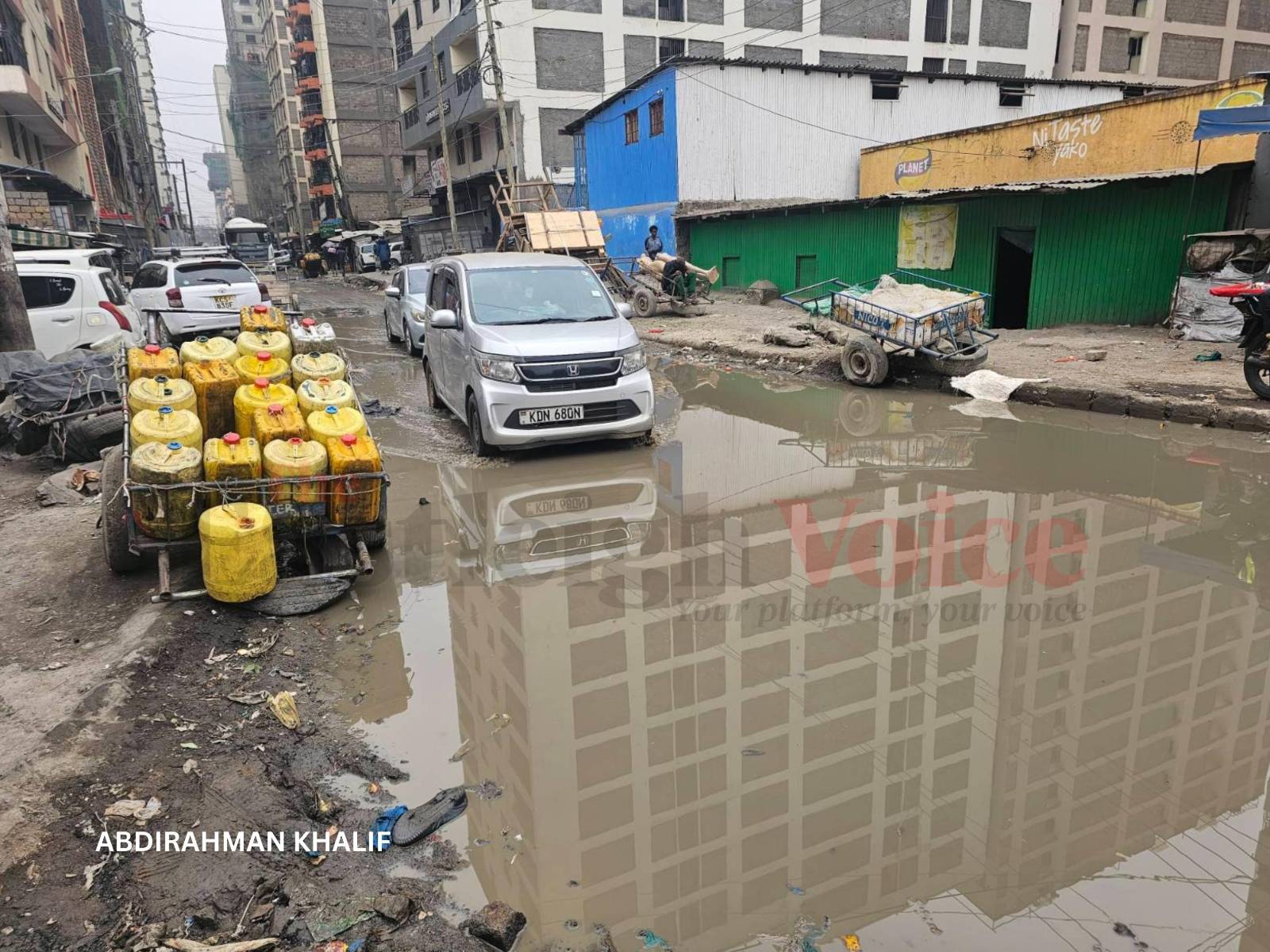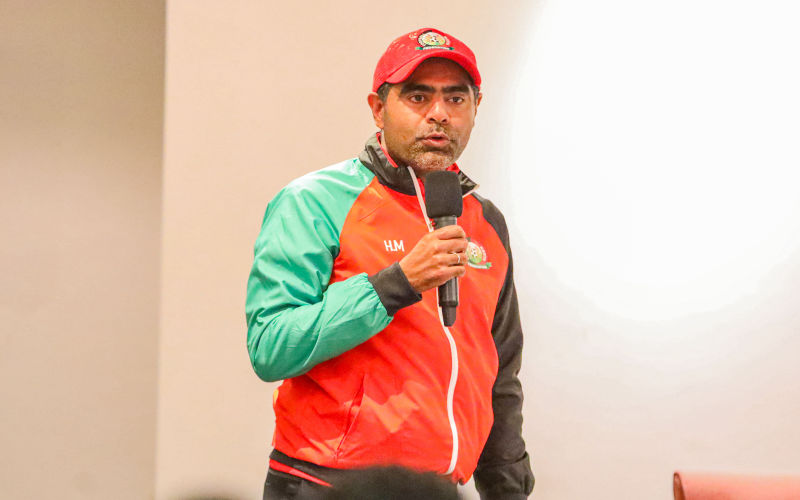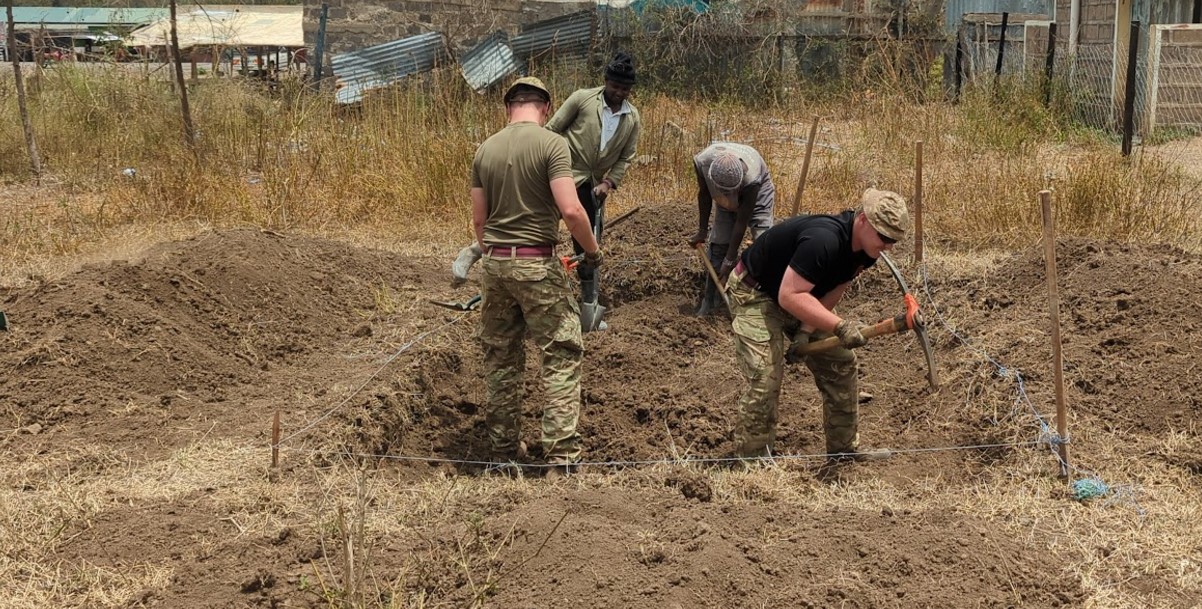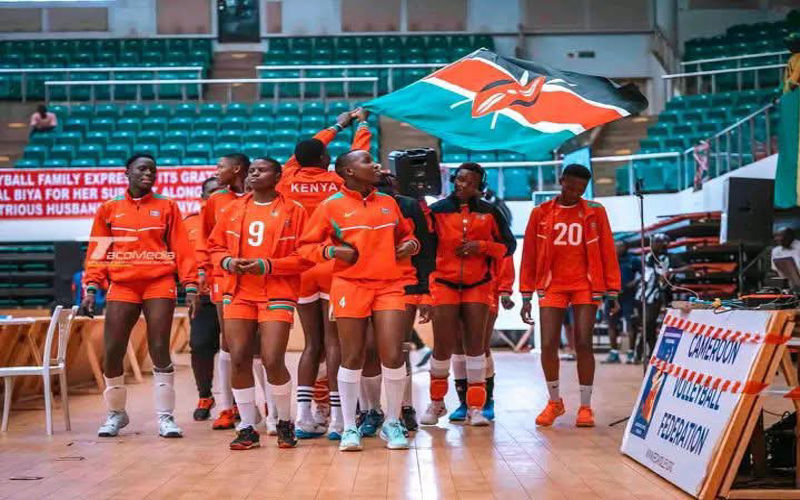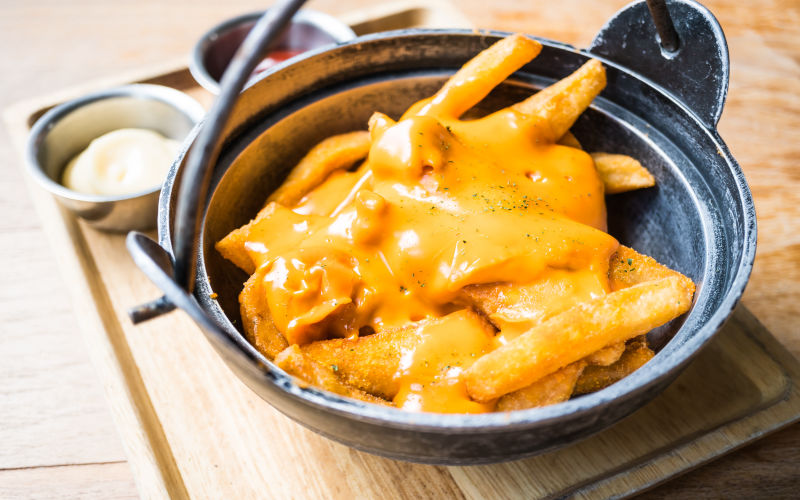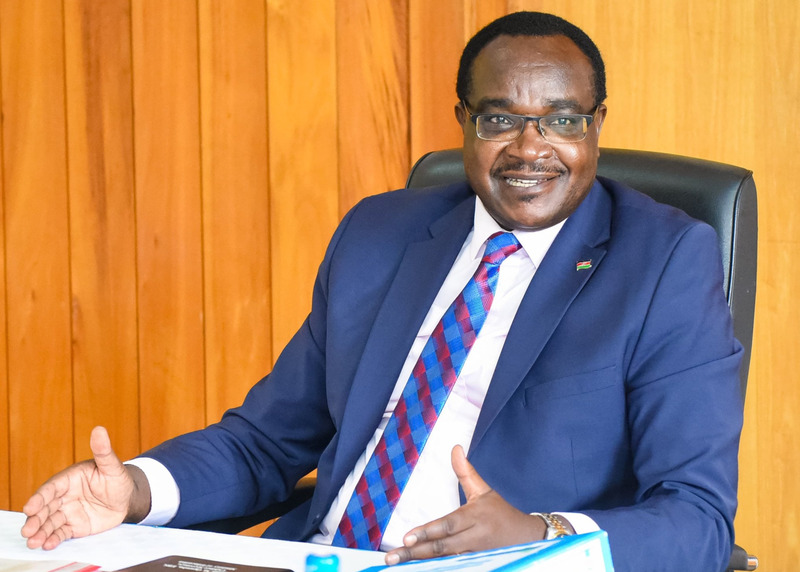Haiti ‘awash’ with guns leaving population ‘absolutely terrified’
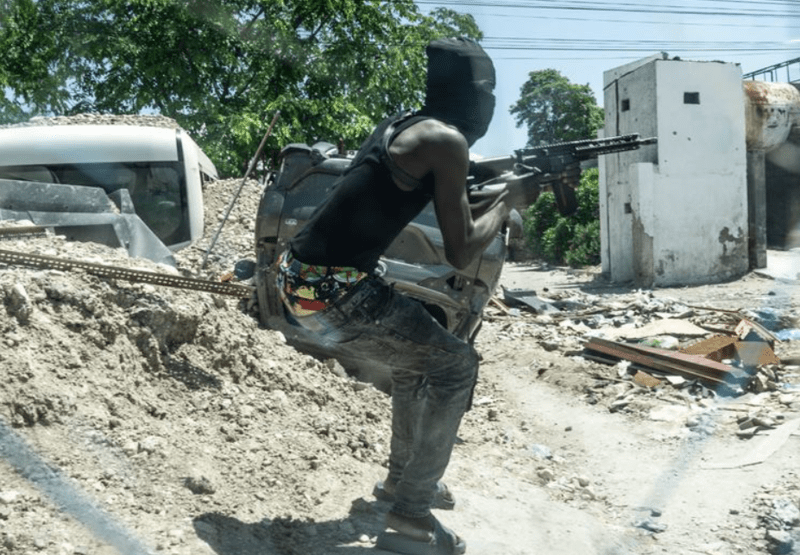
"The gangs have powerful automatic weapons that fire many rounds per minute as well as sniper rifles which some gang members have been trained on. People can be hit from a long distance, and you can imagine the terror that causes."
Hundreds of thousands of guns are being used by gangs to exert control and spread terror in Haiti, according to the UN's designated expert on the human rights situation in the Caribbean country.
The island nation has suffered from a series of humanitarian, economic, political and security crises in recent years and it is widely believed that gangs control up to 90 per cent of the capital, Port-au-Prince.
More To Read
- Haiti declares state of emergency as gang violence spreads beyond Port-au-Prince
- More than 1,500 killed between April and June in Haiti
- Nearly 5,000 killed in Haiti gang violence between October and June 2025 - UN
- Family of missing officer in Haiti moves to court in search for answers
- Haiti’s interim government loses control as gangs demand a seat at the table
- UN urged to rethink peacekeeping mandates to tackle organised crime in conflict zones
William O’Neill spoke to UN News following a recent visit to Haiti.
 UN independent expert on the human rights situation in Haiti, William O'Neill, (second left) talks to officials at a prison in Fort Liberté, Haiti. (BINUH)
UN independent expert on the human rights situation in Haiti, William O'Neill, (second left) talks to officials at a prison in Fort Liberté, Haiti. (BINUH)
William O’Neill: The situation in Haiti regarding guns is absolutely catastrophic. The country is awash in guns, probably in the hundreds of thousands in a population of 11 million.
The gangs have access to an increasing number of high calibre weapons, and a seemingly endless supply of ammunition and some gangs have weapons that pierce armour. This is very dangerous because the Haitian National police and the multinational security support mission led by Kenya are really relying on their armoured vehicles to provide them protection.
There have been recent incidents in which a Kenyan police officer was injured by a projectile inside his vehicle and it is happened to some of the Haitian National Police officers as well.
The gangs have powerful automatic weapons that fire many rounds per minute as well as sniper rifles which some gang members have been trained on. People can be hit from a long distance, and you can imagine the terror that causes.
You are a frequent visitor to Haiti, especially to vulnerable communities there. What are people there telling you about the pervasiveness of guns?
The gangs have weapons that cause immense violence and the people I have met say that it is absolutely terrifying.
Gangs use these firearms, to take territory, to keep out other gangs and to battle with the police, but also to control and dominate people and commit many types of human rights violations simply because they have this power that literally flows from their possession of firearms.
We interviewed some victims, survivors of sexual violence, and it was clear from their testimony that the gangs flaunt their weapons as if to say “do this or else.”
People face the threat of death unless they comply with the gangs.
Haiti does not make firearms nor ammunition. How are they getting into the country?
They come in primarily from the United States, some directly on small ships that leave overwhelmingly from Florida. There is an increased number from the Dominican Republic, still originating in the US, that come over the border, which is very porous.
There was actually a quite active guns-for-drugs trade with Jamaica which predates the crisis, but even those guns mostly originate in the US. Relatively recently, guns have been flowing from Colombia some from FARC and other the Colombian armed groups that were turning a weapons or had the weapons confiscated.
The key is to stop the flow of ammunition, because if the gangs run out of ammunition, then it would not matter what kind of guns they have. They would be finished as they have no popular support.
What is being done to stop the trafficking of these weapons?
Not enough. The head of the Haitian frontier police told me they only have 350 officers to guard a 400 km border. They have one drone, insufficient vehicles and admit they cannot even control the official border crossings.
There is a failure at the ports; there is not a single scanner in the whole country. A large metal scanner could check what is coming in these containers. So that is a huge problem.
On the Haitian side, there is a lack of resources and some corruption. On the US side, there is been an ongoing lack of commitment in terms of inspecting outgoing shipments, although inspections have increased a bit lately under domestic pressure in the United States.
The people hate the gangs, so they would be in major trouble if they lost the source of their strength. So, the US needs to increase the inspections much more.
What more needs to be done?
There needs to be more investigation of the trafficking networks in Florida. Recently there have been several prosecutions and heavy sentences, one involving a former Haitian gang leader who had been extradited to the United States.
His trial testimony revealed how he was obtaining guns from the United States that led to others being arrested, including some Haitian nationals in the US. Heavy sentences would be a big deterrent. If traffickers could end up with 10/15/20 years in a federal penitentiary, they might recalculate their risk reward assessment and say, “you know, it is just not worth it.”
How reliable a partner is the US right now?
I think the US has become more sensitive to this problem and how dealing with it would actually alleviate one of the administration’s major concerns which is Haitian migrants trying to get into the United States.
People recognise that if there is security in Haiti, then the incentive or desperation to get out of the country would diminish quite a bit.
Bringing stability to a neighbour, which is suffering greatly would allow that country to develop economically and in peace. At the same time, you would reduce this push factor of migration of desperate Haitians wanting to leave the country.
The Dominican Republic also has a huge interest in stability in Haiti, as there are concerns about the violence spilling over. I think the Dominican Republic is stepping up efforts to stop this illegal trafficking to Haiti of arms and ammunition.
It is also important to remember that there is a UN Security Council arms embargo.
There is a legal obligation on all countries to take steps to make sure their extraterritorial obligations on the human rights situation in Haiti are connected to following the arms embargo.
Top Stories Today
- British Army inquiry finds soldiers still exploiting women in Kenya despite ban
- KNCHR flags rising attacks, harassment of human rights defenders in Kenya
- IGAD urges youth to take lead in regional peace
- Residents of Eastleigh’s Seventh Street demand urgent road repairs
- UK refutes allegations BATUK officials snubbed Kenyan MPs' summons
- Five Kenyans sue IG Douglas Kanja, top security chiefs over protest violence inaction
